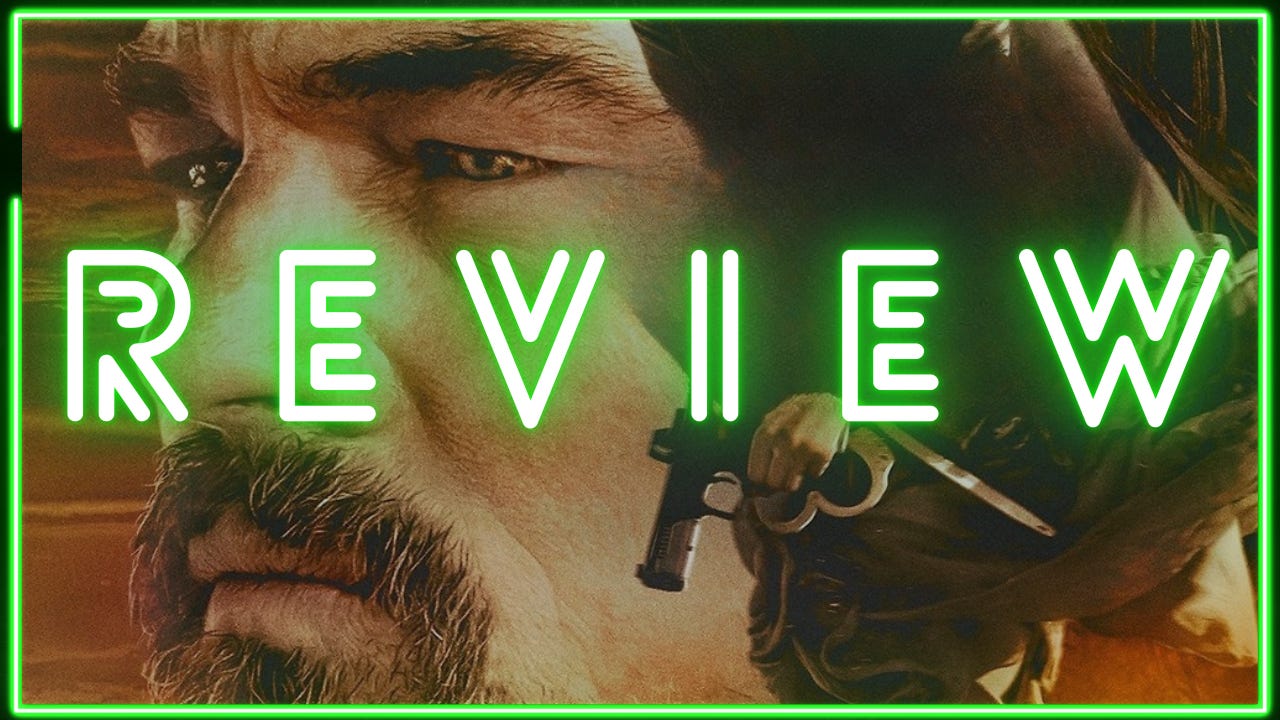Film Review: One Battle After Another
Some Search For Battle, Others Are Born Into It...
INTRODUCTION
This is a quick review of the newly released film One Battle After Another. Please note that this is just one of the many movies I will have watched each year, and my initial grade for this film may change over time, for better or worse. To stay up to date on my thoughts about other movies and any potential changes in my opinion on this one, follow me on Letterboxd.
If you enjoy these reviews, I’d greatly appreciate it if you could share this newsletter with family and friends who might love receiving film reviews, classic movie lists, and Oscars projections straight to their inbox.
PLOT
Via Letterboxd: When their evil nemesis resurfaces after sixteen years, a band of ex-revolutionaries reunite to rescue the daughter of one of their own.
REVIEW
As I’ve done when reviewing Godzilla films, I think it’s only fair to be upfront with you about the fact that I worship at the feet of Paul Thomas Anderson as our greatest living cinematic storyteller. He has now directed ten films, and not a single one going into his latest film has ever dipped below an A– rating from me. Yes, that even includes his most polarizing entry, Inherent Vice. PTA already had three of my highly coveted S-tier scores on his shelf for 1999’s Magnolia, 2007’s There Will Be Blood, and 2017’s Phantom Thread - the latter being a serious contender for my all-time favorite movie and certainly my top film of my lifetime. There’s a reason I call him “The Master”.
If Jon M. Chu nails big studio crowd-pleasers, if Quentin Tarantino spins dialogue that makes you wish conversations never ended, if Martin Scorsese engrosses you in historical epics, if Steven Spielberg enthralls with blockbusters, and if Christopher Nolan transports us across time and dimensions - Paul Thomas Anderson somehow manages to do all of those things across his compact but seismic filmography. His films have ranged from examining the porn industry at its peak, to giving us Tom Cruise playing Andrew Tate decades before Tate was a thing, to a dark epic told from a villain’s perspective, to a gothic romance set in London’s 1950s fashion world, to a nostalgic coming-of-age story set in the seventies. His movies make us laugh, believe in love, and confront the darkness of humanity. Honestly, you’d have to bring up the late Akira Kurosawa before I’d even consider ranking another director above him - and Kurosawa is the only director to earn four S-tier grades from me (Seven Samurai, Yojimbo, High And Low, Ran)
So, yes, it’s only fair to admit that you’re reading the words of a full-fledged PTA simp. Keep that in mind as you read on and decide for yourself whether I’m grading on a curve. All I can promise is this, I don’t fake my reactions. Either I like a movie, or I don’t. Maybe One Battle After Another will be the one to finally break the streak and leave me underwhelmed. Maybe not. Awards buzz and effusive praise aside (full disclosure, I’ve been predicting this as the Best Picture winner since way back in the spring), I’ve been on the minority side of critical consensus before. Even with my favorite directors or film franchise, every once in a while there’s an entry that just doesn’t hit me as hard as it does others.
It pained me that the one night I had a press screening lined up was the one evening I couldn’t attend. So instead of being among the many critics out of the gate, I had to wait it out like general audiences, catching a Thursday preview at my local Regal. Walking in, I felt like the last critic to finally see the film, fully aware of the flood of glowing reviews already published. So I asked myself, what could I possibly add to the conversation? Would I fall in line with the consensus, or find something different to say? And if I did agree with the consensus, what else is there to say that others already haven’t? In the end, the only answer was to do what I always do; buy some popcorn, sit down, watch the film, and then come home and write my review. So here I am.
Well, I can tell you right now that One Battle After Another isn’t going to end the streak of A- or higher grades I’ve given to PTA films. In fact, I’ll just say it outright - I’m giving it the rare S-Tier mark. Anderson’s films usually need time to marinate with me, as they often do with audiences. It took a few rewatches before I finally admitted There Will Be Blood and Phantom Thread deserved to be graded that high. But with his latest, I walked out of the theater already knowing it was a new all-timer, much like the feeling I had the first time I saw Magnolia years ago.
That also means, at least for me, Anderson now joins Akira fucking Kurosawa for the most perfect scores I’ve ever given a director’s catalog of films. With One Battle After Another, PTA officially enters the debate for the greatest filmmaker in cinema history. I’m not exaggerating. I’m not playing around. Call it fanboyism if you want, but that’s genuinely how I see his legacy now.
Given this film’s unapologetic political commentary, it’s inevitable that bad-faith right-wing critics will come after it. I wouldn’t waste any time on them. The film firmly plants its flag in the ground by declaring, among other things, that human beings should never be seen as “illegal,” that people have a right to protest when their freedoms are stripped away, and that white supremacists still exist in this country with influence over systemic racism.
At the same time, it doesn’t let the left off the hook. Without spoiling too much, our protagonists end up in their predicament largely because their radical movement has stalled under the weight of the same mistakes and sins that have plagued past leftist movements. Teyana Taylor’s Perfidia embodies much of that in her character arc. The film ultimately reminds us that for every two steps forward, there’s often one step back, that true revolution advances slowly, generation by generation. Something passionate leftists struggle to understand to this day when it comes involvement in party politics.
The film’s anti-ICE and anti-fascist stance couldn’t be arriving at a more urgent moment. Art matters because it builds empathy, and in an era where an increasingly authoritarian right is working to suppress free speech, a dissenting film like this feels vital. It won’t be the year’s highest grosser or the most mainstream release, but to me, it is unquestionably the most important. PTA has been trying to tell this story for over twenty years, inspired by Thomas Pynchon’s Vineland, a novel published during the elder Bush administration. What makes it remarkable is that while it feels piercingly timely today, its themes have been tragically relevant for decades. This is who we are as a country, this is who we have been trying to evolve away from being, but have been painfully slow to.
Beyond its politics, the film’s heart lies in the connection between Leonardo DiCaprio’s Bob and Chase Infiniti’s Willa. This is, at its core, a very pro–girl dad movie, and as someone who is about to become one, it hit me hard watching Bob do everything he can for his daughter as she shoulders the burden of her parents’ sins. I do wish we’d gotten just a little more time with them before the plot really kicks in, but Bob’s arc as a bumbling, broken man who let alcohol and drugs strip away the strengths of his youthful vigor makes him a deeply relatable protagonist. He’s an everyday man trying desperately to save his daughter from nearly impossible odds.
Performance-wise, Leo is incredible, bringing equal weight to both versions of Bob; the whip-smart revolutionary we see in the prologue and the strung-out stoner dad who anchors the main story. Chase Infiniti, meanwhile, is the breakout star of the fil, an absolute discovery who’s destined for big things after this. Regina Hall and Teyana Taylor are equally strong, giving dual-layered performances that show both the softer and harder-edged sides of revolutionaries. Benicio del Toro flat-out steals the show as Sensei Sergio, instantly becoming one of my favorite film characters of the year. And Sean Penn delivers a masterclass in villainy, terrifyingly evil yet ridiculous enough to be mocked as a comedic foil as well.
What’s most impressive is how seamlessly the film fuses its themes with its entertainment value. The mix of action, thrills, and comedy is near-perfect. This is absolutely a “big crowd” movie; the laughs land hard (even a gag about Bob trying to charge his phone is pitch-perfect), and the action is genuinely pulse-pounding, capped by a climactic car chase that had me gripping my seat like I was on an amusement park ride.
On a technical level, this is one of PTA’s most finely directed efforts. The cinematography is stunning, the writing whip-smart, and the editing brisk and purposeful, making a nearly three-hour runtime feel far shorter. Jonny Greenwood, once again, delivers an all-timer of a score, and the soundtrack is easily among the year’s best.
One Battle After Another is a ridiculously entertaining film that also dares to say the things that those in power would rather go unheard. It’s PTA once again proving the astonishing range he has as a cinematic storyteller. This is the kind of movie future generations will point to as courageous in a moment when so many were content to bend the knee. And yet, it’s also endlessly rewatchable; accessible enough to connect with wide audiences while never compromising its bite.
It’s a film that reaffirms Anderson as one of the greatest of the greats and instantly earns its place as a new classic. The man just keeps making banger after banger.
“TL;DR”
Pros: The typical top-tier direction, writing, and cinematography you can expect from a PTA film; Johnny Greenwood delivers another amazing score; Incredible fusion of thriller and comedy genres; Performances that feature some of the most unforgettable characters of this film year; Timeless tale of revolution and anti-white supremacy while still holding nothing back on realities of the struggle
Cons: Very minor personal nitpicks that aren’t even worth much mentioning in this section
GRADING




